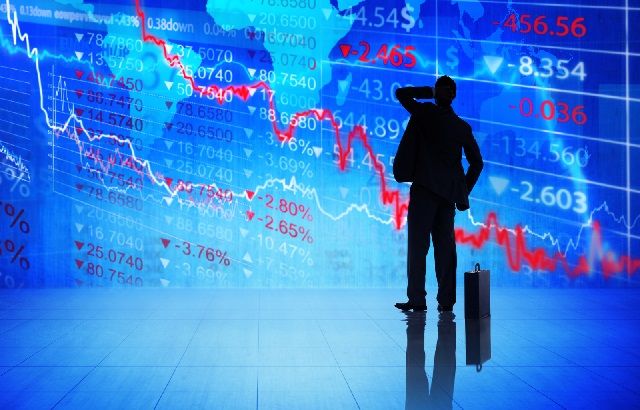As central banks take escalating measures to stem the coronavirus crisis, experts see the possibility that its effects could be limited.
A survey by the London School of Economics and Political Science (LSE), a UK social science university, has found that economists broadly agree that there will be a sharp downturn in the economy, but diverge when it comes to the length of the dip.
The university interviewed 36 US and 38 European experts, with a bigger majority of the European panel agreeing that a major recession is likely.
Out of 74 respondents, 48% strongly agreed (vs 19% US experts) that a major a recession is likely, 34% agreed (vs 44%), 13% were uncertain (vs 31%) and 4% disagreed (vs 8%).
Central bank action
The survey, published on 12 March, comes as the European Central Bank (ECB) has kept scaling up its measures.
On this day, Christine Lagarde, president of the ECB, announced it will keep the interest rate unchanged while adding net asset purchases of €120bn to its current programme.
During the press conference, she also said that we are “not here to close spreads”, a comment for which she came under fire afterwards.
At the same time, the ECB announced new longer-term refinancing operations (LTROs) and more favourable terms for targeted longer-term refinancing operation (TLTROs) from June 2020 to June 2021.
Speaking to Expert Investor, Grégory Claeys, research fellow at European economic thinktank Bruegel, described the liquidity tool, which supports bank lending to small and medium-sized enterprises, as innovative.
About a week later, on 18 March, Lagarde announced a €750bn bond buying programme to fend off the risks from the crisis.
Juha Seppala, director of macro asset allocation strategy at UBS Asset Management, welcomed the programme broadly, while expressing some scepticism: “Is it enough? Nobody knows. It really depends on how long the coronavirus will have an impact and how big that impact will be.”
Analysis
JP Morgan Chase & Co outlined in a cross-asset strategy, published on 13 March, three conditions which it said will define market stability in the upcoming two months:
- a peak in the US/European daily infection rates and slowdown towards a single-digit pace, thus allowing investors to project the end of growth and earnings downgrades;
- recession-like pricing in financial markets to accommodate the inevitably grim news flow this spring; and
- a reversal in investor positioning from January’s widespread overweights to neutrals or underweights.
While the last two conditions have mostly been met, not the first.
The authors of the article expect that “this contraction should prove the shortest ever”, suggesting it could last two quarters, compared to the average of four quarters.
As the cause of market stress “is a public health crisis rather than a leverage or profitability crisis”, fundamentals would improve with a peak and then slowdown in covid-19 daily infection rates in the US and Europe.
“Policy easing can sometimes drive turning points if the underlying adjustment in the economy, valuations and positioning is fairly advanced,” the authors added.
However, they said they are sceptical about the credibility of developed market monetary policy when cash rates are at the effective lower bound (Europe, Japan) or near it (US).
The analysis also pointed to one major difference when comparing the global covid crisis with the global financial crisis – the scale of an underlying leverage problem that becomes stressed by a shock.
What is the likely recovery path?
A Harvard Business Review article, published earlier on 3 March, also argued that the crisis could follow an optimistic recovery path despite its significant disruptive potential.
When reviewing history, the authors warned against “drawing a straight line between financial market sell-offs and the real economy”.
“Whether economies can avoid the recession or not, the path back to growth under covid-19 will depend on a range of drivers, such as the degree to which demand will be delayed or foregone, whether the shock is truly a spike or lasts, or whether there is structural damage, among other factors,” the authors wrote.
Among three scenarios, they believe that the “classic” real economy shock is most plausible.
Growth would eventually rebound after a displacement of output.
The other two scenarios would either see a permanent loss of output, for which they currently don’t see enough evidence, or the unlikely case of significant structural damage happening, such as breaking something on the economy supply side.
Amundi’s group chief investment officer Pascal Blanqué, deputy group chief investment officer Vincent Mortier and global head of research Monia Defend, commented: “Investors have moved from underestimating the severity of the crisis to a full global escalation, with the US joining emergency measures, which has led to market disruption and over-reaction.
“We are still in this over-reaction phase… the next two weeks will be critical to see the effects of the containment measures and to estimate the potential length of the economic contraction.”







